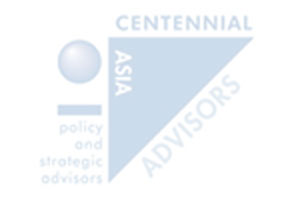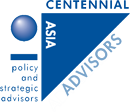Asian Insights
A summary of “Asian Insights” weekly update is published here. The full version is available through paid subscription. Please click here to register your interest. Our executive will get in touch with you.

Highlights from the Weekly Table:
Asian political risk: ASEAN pulled off a success by getting Myanmar’s junta to sign onto a consensus statement on the Myanmar crisis. However, we doubt whether there will be more than a short pause to the violence in Myanmar: we do not see the junta making major concessions.
Asian economies:
- Korean and Taiwanese trade data affirm our view that the shape of global demand is broadening out beyond the sorts of goods that were greatly in demand during the pandemic such as electronics.
- India is wilting as the pandemic turns into a tragedy. Given the limited options for policy support to offset the damage, the economic recovery will be set back for several months. Premier Modi’s popularity will be hurt but he has shown a capacity to overcome political adversity. Neither is India’s crisis likely to affect the global economy given its relatively small footprint.
- Bank Indonesia has acknowledged the slower-than-desired pace of economic normalisation but its room for policy easing is clearly constrained by its concerns for the Rupiah.
Is trouble brewing for Xi Jinping under the calm surface of Chinese politics?
- Much is happening in Chinese politics in the run-up to the 20th party congress in November 2022. Former Premier Wen’s essay indirectly criticizing President Xi Jinping is just the most prominent example of potential disaffection with Xi.
- While Xi has crushed these recent expressions of dissent and is likely to continue firming his grip on power in the near term, his position is not so indomitable as it might seem.
- Xi has built a power base but there are questions over how loyal his acolytes really are. He has made many enemies as well and has reversed the reforms which had helped China’s political system offset some of the downsides of authoritarianism. Any serious misjudgement in either the domestic sphere or in foreign policy would crystallise these weaknesses in Xi’s position.
China: Economy on firmer footing
- There is considerable debate over the outlook for the Chinese economy given recent adverse news on housing market regulation and fears of policy tightening. The authorities have also ramped up antitrust probes into the practices of major tech companies such as Alibaba and Tencent, further impacting sentiment.
- Our analysis suggests that these fears are likely overdone. We now expect full-year GDP growth to print 8.6%, up from 8.0% previously.
- Two main factors underpin our revised forecasts: a bigger expected contribution from exports and industrial production followed by a less accentuated slowdown in the interest-rate sensitive sectors – more than offsetting persistent weakness in consumer spending. Moreover, the balance of risks to the outlook are in our view tilted to the upside, should private sector investment show signs of a turnaround by year-end.

Highlights from the CAA Weekly Table:
- Global tax regime: There is a good chance of a global agreement that will prevent countries such as Singapore from using tax incentives to attract business headquarters.
- Asian economic policy – more vexing policy dilemmas across Asia. In China, pipeline inflationary pressures are growing even as consumer spending remains weak: more administrative measures appear likely. In India, the central bank faces challenges in calibrating policy while in Indonesia, the president’s support for changes to Bank Indonesia’s mandate has revived fears for the continued independence of monetary policy. Froth in the housing market raises the risk of macro-prudential measures in Singapore. In the Philippines, critics worry that the revised deal with a utility undermines the rule of law and makes attracting foreign investment even more difficult.
Accelerating global recovery boosts Asian exports, inflation risks contained
- The global recovery is gaining traction and feeding through strongly into more robust export growth in Asia. The forward-looking indicators for exports remain upbeat.
- One risk to Asia’s growth is that new virus variants spark off further surges in COVID infections – but this risk is likely to be contained as vaccines are rolled out and improved vaccines are introduced.
- A second risk to Asia is an unexpectedly strong revival in global inflation. However, we do believe the chances are low, so long as inflationary expectations remain well-anchored and the slack in the global economy and major labour markets persists. There is a growing risk though of an abrupt shift in Federal Reserve policy signals: we see a robust recovery making its ultra-easy policy stance increasingly untenable.
Singapore: Snag in Succession Points to Deeper Weaknesses in Political System
- The political succession in Singapore has been thrown into disarray following the abrupt decision by Deputy Prime Minister Heng Swee Keat to step down. Prime Minister Lee Hsien Loong has announced that he will stay on for longer than planned as it might take two to three years before a new successor is ready. Trade and Industry Minister Chan Chun Sing seems to be in pole position to emerge as successor. A cabinet reshuffle in 2 weeks’ time may make the relative standing of likely successors clearer.
- Strong political institutions and a consensual approach to politics provide considerable ballast to Singapore’s political stability. Nevertheless, the latest development reveal weaknesses in the political set-up which have raised political risks.
- In essence, Singapore’s highly controlled political system may not have adapted to the changing rules of the game. The ruling party’s cadre members are less manageable than before while a more questioning electorate is pushing back more frequently against the government. The over-reliance on a narrow and select group of individuals at the highest echelons of power leaves the ruling party with little room for error.
